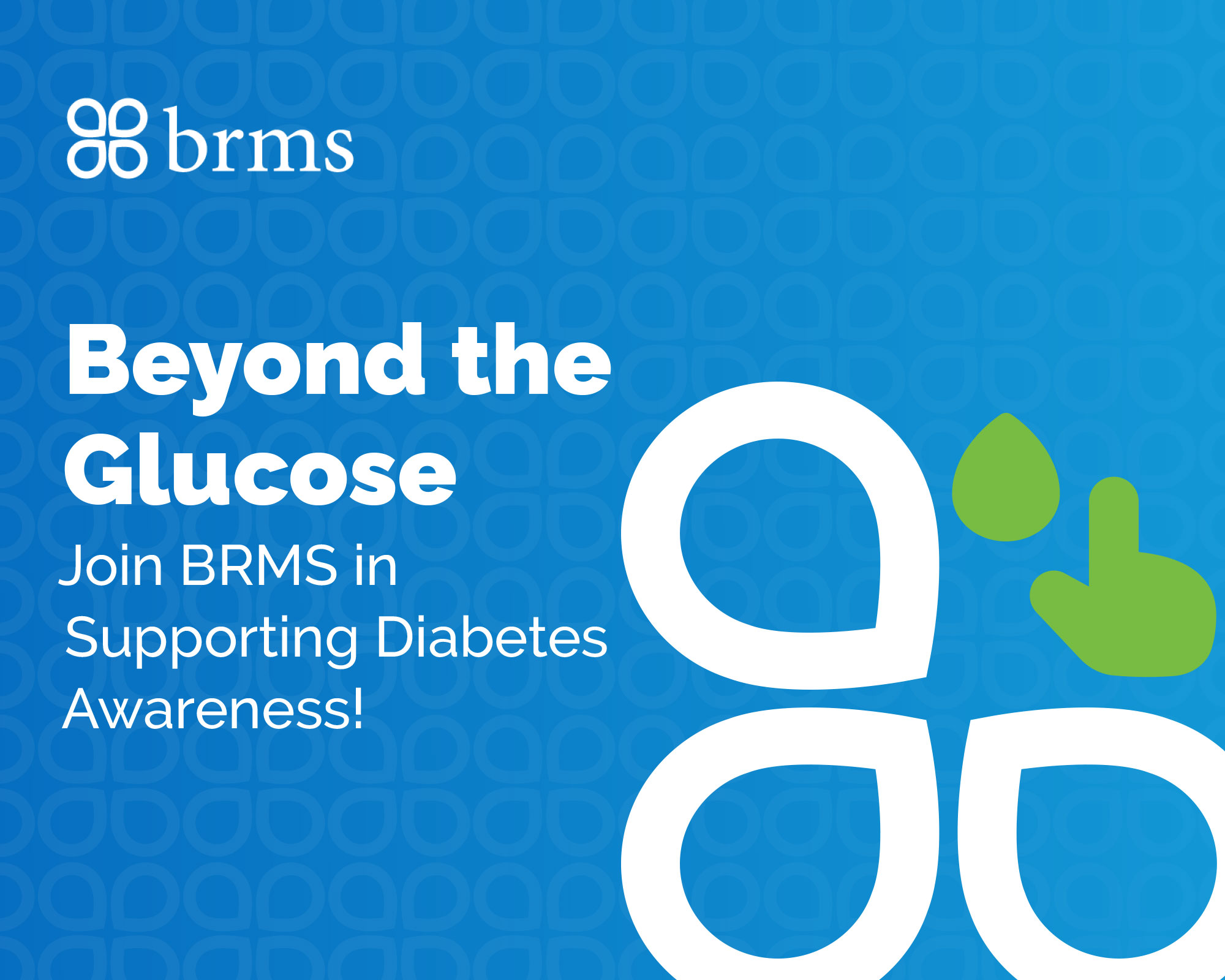

October is a great time to pause and shine a spotlight on a health issue that impacts millions: diabetes. Whether someone has Type-1 or Type-2 diabetes, is newly diagnosed, has been living with it for years, or wants to reduce risk for themselves or loved ones, greater awareness and practical strategies can empower better health decisions.
In this month’s Workday Wellness blog, we’ll dive into some key facts about diabetes and share actionable tips to help manage it well in daily life. Take a few minutes to read through the blog and support diabetes awareness with BRMS while boosting your health literacy in the process.
![]()
- Over 38 million Americans live with diabetes*
- More than one in five adults with diabetes is undiagnosed*
- Prediabetes affects nearly 1 in 3 U.S. adults*
- Age-standardized prevalence of diabetes in the U.S. rose ~18.6% from 2012 to 2022 (from 10.2% to 12.1%)**
- The annual cost of diagnosed diabetes in the U.S. is estimated at $412.9 billion

Make a Personalized Self-Care Plan
Work closely with your healthcare team to build a realistic, individualized plan. Include your target blood sugar (A1C), medications, monitoring schedule, and lifestyle goals.
Monitor and Understand Your “ABCs”
Stay on top of your ABCs: A for A1C (average blood glucose over time), B for blood pressure, and C for cholesterol. Keeping these in check lowers the risk of complications from diabetes like heart disease, stroke, and kidney damage.
Adopt Smart Nutritional Habits
Choose whole, minimally processed foods that are rich in fiber, along with lean proteins, healthy fats, and complex carbs. Be mindful of portion sizes and carb timing as eating carbs later in a meal can help blunt blood sugar spikes.
Move Daily, Even in Small Increments
Physical activity helps insulin work better and keeps blood sugar more stable. The best part? You don’t even need long workouts. Frequent and consistent short bursts or activity, walking breaks, or light resistance training add up and contribute to improved outcomes.***
Manage Stress and Emotional Well-Being
Stress, poor sleep, and emotional strain can all push blood sugar out of balance. Develop coping strategies (meditation, journaling, support groups), prioritize an adequate amount of rest each night, and seek mental health resources when needed.
Sources:
* https://www.cdc.gov/diabetes/php/data-research/index.html
** https://www.ajpmonline.org/article/S0749-3797%2824%2900136-3/fulltext
*** https://www.mayoclinic.org/diseases-conditions/type-2-diabetes/diagnosis-treatment/drc-20351199
